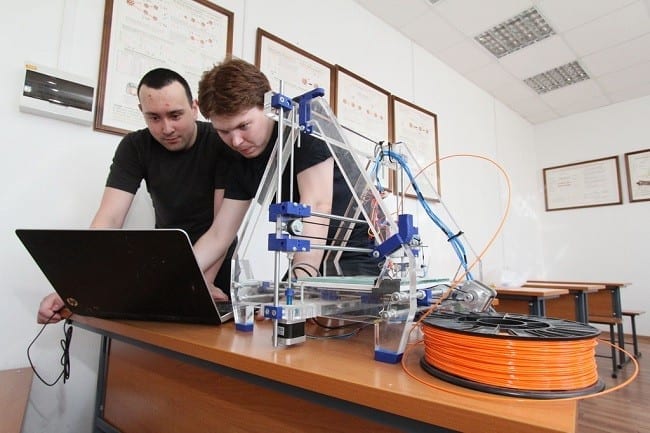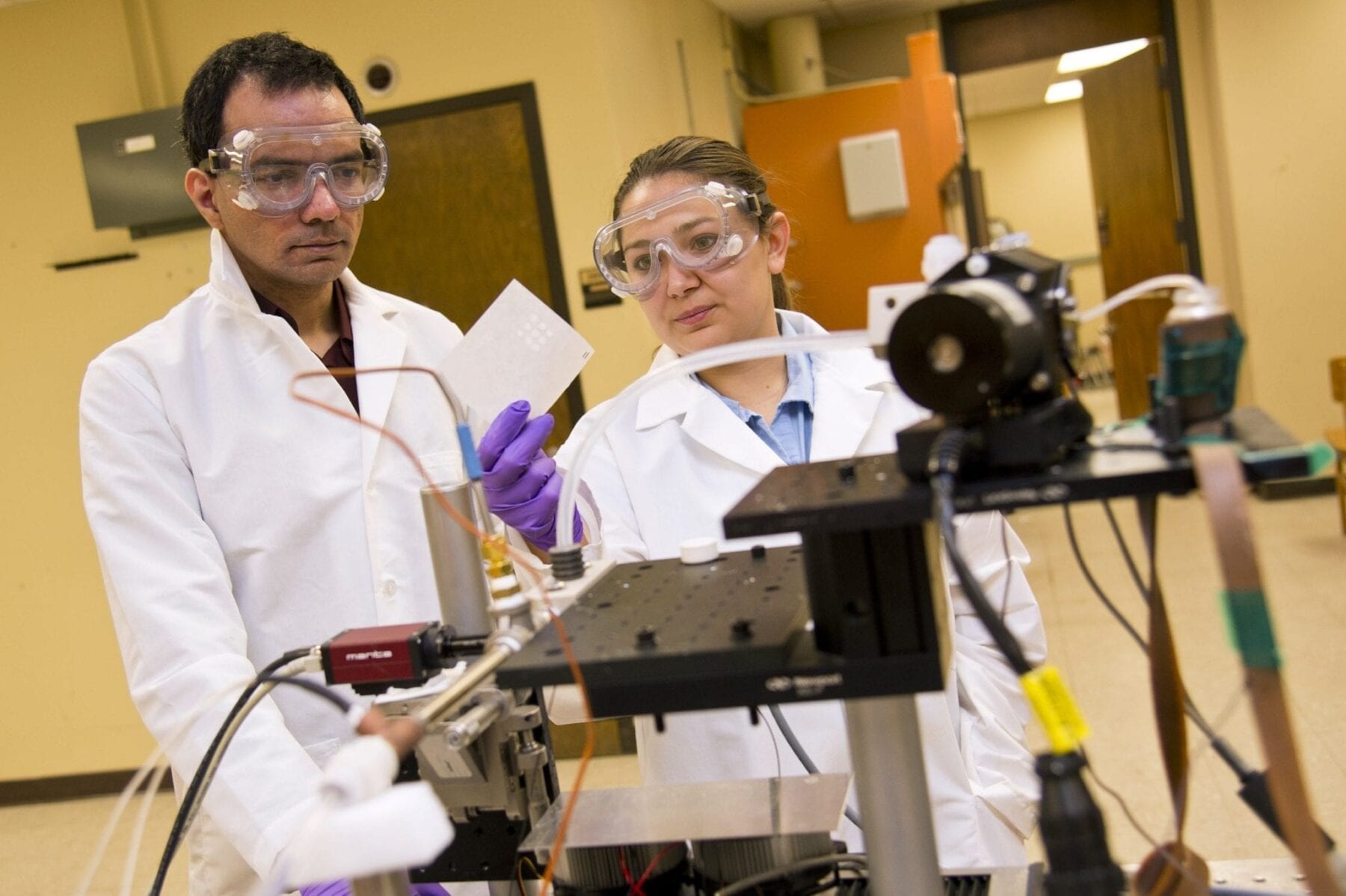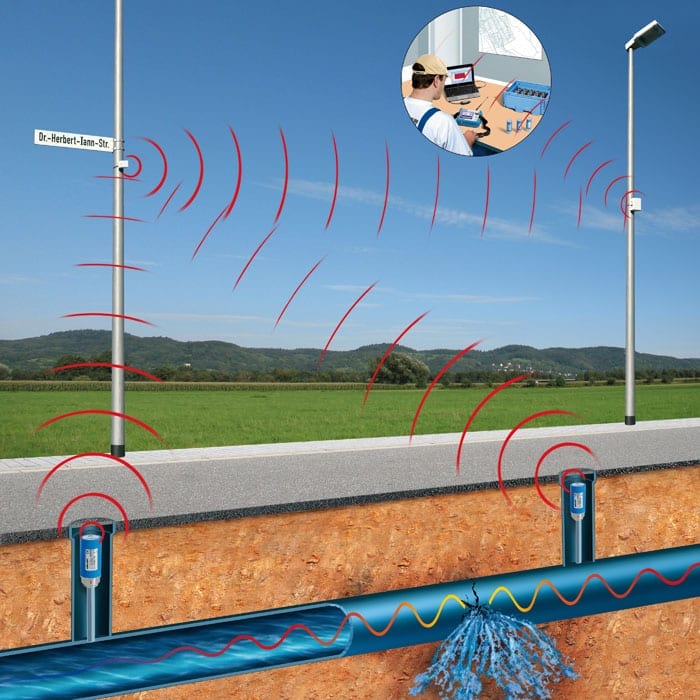
Young scientists from Tomsk Polytechnic University are developing a robotic arm prototype and its control algorithm using myoelectric signals. The mechanical limb will independently recognize the motions of its owner and be able to do all the same motions like a healthy arm. The scientists estimate the final cost of the device of between $600 to $1,000 USD.
According to the developers – fellows at the Laboratory of Medical Instrument-Making, the Institute of Non-Destructive Testing – Mikhail Grigoriev, Nikita Turushev and Evgeniy Tarakanets, the manufacturing of human prosthetic limbs has been available for a few decades. But to make them functional, translate them into a full replacement of a lost body part is still impossible.
“To date, there are quite available traction prostheses. Their movement is carried out by means of traction belts which are superimposed from the repaired arm across the back as loop around of the healthy shoulder. That is the prosthesis acts by movements of a healthy arm. The drawbacks of this type are in need of unnatural body motions to control it,”
– says Nikita Turushev.
The algorithm being developed by the polytechnicers will save people from having to wear traction belts. Sensors on the prosthesis will pick up myoelectric signals. Human brain sends signals to muscles making them to perform the necessary actions. The system will analyze the command coming to the healthy arm part and “guess” what motion the prosthesis should do.
“Initially, the program will be universal, but we will adapt it to each specific mold arm. Further, the algorithm will learn at an individual who wears the prosthesis: to fix myoelectric signals and choose required motions,”
– says Mikhail Grigoriev.
Now the young scientists “teach” the algorithm different signals and their meanings. Initially, they will examine at least 150 people with healthy limbs. “Remembered” the signals and following them meanings the soft will produce them at the stage of medical trials.
Learn more: TPU Scientists Develop Thought-Controlled Arm
The Latest on: Thought-Controlled Arm
[google_news title=”” keyword=”Thought-Controlled Arm” num_posts=”10″ blurb_length=”0″ show_thumb=”left”]
via Google News
The Latest on: Thought-Controlled Arm
- While walking do these 3 exercises to lose arm faton May 8, 2024 at 5:18 am
Keep in mind to go at your own pace and prioritize walking over arm movements. Pay close attention to your balance and maintain control of your upper body. To activate your core and aid in stability ...
- For Stephanee Byars, life goes on, even without her right armon May 7, 2024 at 6:08 am
Stephanee’s situation is unique; during the amputation doctors placed nerves from her hand into her upper arm, which allow her to control the more complicated ... but now doesn’t pay it much mind. It ...
- Gun Controlon May 6, 2024 at 3:02 pm
ABC News’ Rachel Scott looks at where the 2024 field is on gun control and Biden’s message on the subject as he runs for re-election. The Supreme Court will hear arguments about a federal law ...
- Logano experiences hand-control Mustang with Torsten Grosson May 6, 2024 at 12:00 pm
Joey Logano showed up at Charlotte Motor Speedway in mid-March admittedly having done zero research beforehand about what he was getting into. The two-time NASCAR Cup Series champion, through his ...
- New Non-Invasive Brain-Computer Interface Enables Thought-Controlled Object Manipulationon May 5, 2024 at 8:50 pm
Researchers have showcased noninvasive BCIs in their recent study, offering a promising alternative with enhanced safety, affordability, scalability, and accessibility for a broader demographic.
- Non-invasive brain-computer interface to help control objects by thoughton May 5, 2024 at 8:49 am
Researchers at Carnegie Mellon University (CMU) recently showed that an AI-powered, non-invasive brain-computer interface (BCI) can allow a person to track a moving object on a screen just by simply ...
- Robotic Arm Provides Independenceon May 1, 2024 at 9:15 pm
Wade said the best part of the robotic arm is not only the independence it gives him but the way it challenges his mind. He must concentrate to grab something and consider depth perception. Overall ...
- Teddi Mellencamp Thought She Was in Menopause but It Was 'Symptoms from the Copper IUD'on May 1, 2024 at 10:00 am
Real Housewives of Beverly Hills alum Teddi Mellencamp Arroyave said she thought she was in perimenopause but her doctor said she was actually experiencing symptoms from her copper IUD.
- Secretlab's monitor arm and laptop mount combo is a game-changer for its Mac customerson May 1, 2024 at 9:15 am
The combination of Secretlab's monitor arm and laptop mount is the perfect addition to the MAGNUS for any Mac user, and a great reason for a prospective customer to take the plunge!
- Arm Holdings: Priced For Perfection While Facing Several Challengeson April 29, 2024 at 5:31 pm
Arm Holdings, a major player in the chip industry, faces challenges from open source RISC-V as well as geopolitical tensions. Learn more about ARM stock here.
via Bing News










